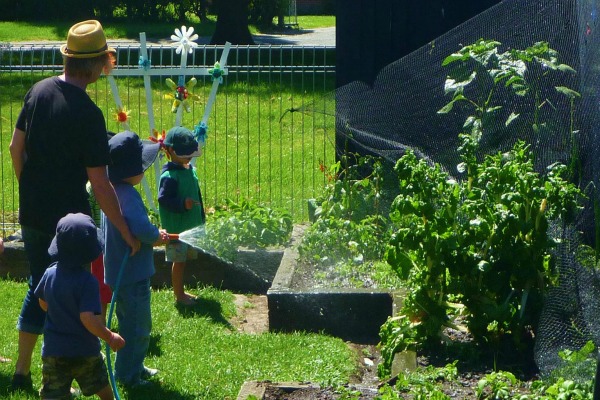Enviroschools

The Enviroschools Programme is a unique sustainability journey, and more than 860 early childhood education centres and schools in New Zealand are already a part of it.
Lincoln University Early Childhood Centre joined Enviroschools in 2013.
Early childhood education provides the foundation for children to form attitudes and values about the world, which they will carry with them throughout their lives.
Early childhood experiences should foster the development of children’s empathy with the natural world and nurture the concept that the child is a part of nature.
Through exploration, discovery and connections with the environment, tamariki experience how to make decisions and take action to improve the physical and social environment while developing a sense of belonging within their natural environments and community.

The Enviroschools kaupapa is based on five guiding principles.
Early childhood centres and schools are encouraged to integrate these into all the teaching they undertake.
Empowered Students are enabled to participate in a meaningful way in the life of their early childhood centre or school. Their unique perspectives are valued for the knowledge and insight that they bring, and they are supported to take action for real change.

The principle of Learning for Sustainability recognises the types of teaching and learning that foster student empowerment, decision-making, action and sustainable outcomes.
The principle of Māori Perspectives honours the status of tangata whenua in this land and the value of indigenous knowledge in enriching and guiding learning and action.
Respect for the Diversity of People and Cultures acknowledges the unique gifts, contributions and perspectives of individuals and groups, reinforcing the need for participatory decision-making in Enviroschools.
Sustainable Communities act in ways that nurture people and nature, now and in the future, to maintain the health and viability of our environment, society, culture and economy.Tamariki at Lincoln University Early Childhood Centre are developing an understanding of environmental education and playing a significant role in creating sustainable communities by:
- Being role models of sustainable practices (such as recycling, keeping a worm farm, gardening, composting, monitoring energy and water use).
- Being empowered to be the teachers amongst their families and peers and sharing their environmental messages with their whānau and community.
- Being involved in planning around issues and practices that support the environment and developing an understanding of how to make informed decisions and take action.
- Engaging in direct experiences – ‘real work’, such as taking part in the processes of keeping a worm farm, planting and harvesting gardens, recreating outdoor environments, or hunting for litter.
- Engaging in activities that promote a sense of contribution, such as planting seeds in a vegetable garden, recycling paper, or turning off the lights when leaving a room.
- Developing a sense of connectedness through the exploration of natural materials, tactile exploration, caring for plants or animals and exploring insect gardens.
- Developing cooperation skills in playing and exploring nature with others.
- Demonstrating a developing sense of respect for nature, the environment and its components and expressing an increasing appreciation and affinity for nature.


